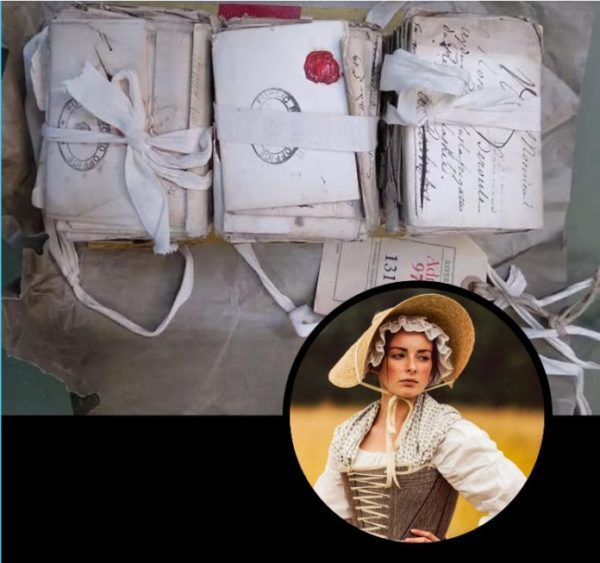
In the time before WhatsApp, email, Facebook, and other wonders of the modern world, communication was slow and proceeded through the only possible means—old-fashioned letters. Today’s story takes us to letters written during the Seven Years’ War, the first global conflict fought from 1756 to 1763. During this war, the English captured the French crew of the ship Galatée, which sailed from the French Bordeaux to Quebec, Canada. The ship and crew were captured in April 1758, and it is said that England aimed to detain as many French sailors as possible to create a problem for France, which struggled with an experienced naval force. The capture of ships with their arsenal likely played a crucial role.
How did the letters end up in England?
The sailors’ closest relatives wrote them letters, and the postal service sent them from port to port in France, hoping to catch the ship before it set sail. When it was discovered that the ship was captured, the letters were forwarded to the Royal Navy in England. After a cursory examination revealed that the letters posed no threat, they were simply stored away. They remained forgotten until Professor Renaud Morieux from the University of Cambridge noticed them in a digital archive, not knowing what he would find among the recorded materials. Curious, in a box at the National Archives in Kew, London, three bundles of letters awaited him, wrapped in white ribbon. He said the letters were small, and some of them bore red wax seals, so Morieux had to seek approval to unseal them. The letters were written, interestingly, on heavy and expensive paper, by ordinary people who are usually overlooked by history. Morieux analyzed all the letters, and the results of his research were published in the French historical journal Annales.
What did the letters say?
Among other things, a certain Anne Le Cerf wrote passionately to her husband Jean Topsent, a ship’s officer:
I can’t wait to possess you, signing as: Your obedient wife Nanette.
Among the letters was one from Marie Dubosc, who wrote to her husband, the ship’s first lieutenant Louis Chambrelan. She noted the following:
I could spend the night writing to you… I am forever your faithful wife. Good night, my dear friend. It’s midnight. I think it’s time to rest.
She died in 1759, before her husband was released from captivity. He returned to France in 1761 and remarried. Among the senders was Marguerite Lemoyne, the mother of a certain Nicolas Quesnel, who wrote:
On the first day of the year, you wrote to your fiancée… I think of you more than you think of me… In any case, I wish you a happy New Year…
Nicolas survived captivity and later joined the crew of an overseas slave ship. It was a ship that transported slaves.
Redefining Literacy
Some of the crew members died from illness and malnutrition, but many survived and were released from captivity. Sixty percent of the letters were sent by women. It is assumed that a good portion of these people were illiterate and that someone else wrote letters for them. According to historians, this moment redefines the concept of illiteracy because even the illiterate had access to the culture of writing through those who knew how to write. These letters reveal love, passion, but also jealousy and strained family relationships. Morieux believes that they are indicative of universal human experiences in which concern for loved ones comes to the fore.
By: Sonja Kirchhoffer